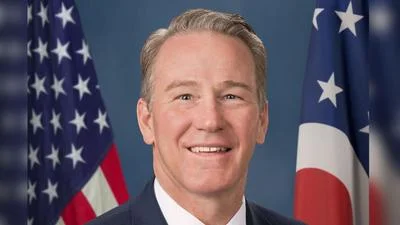U.S. Senator Sherrod Brown (D-OH) | U.S. Senator Sherrod Brown (D-OH) Official Website (https://www.brown.senate.gov)
U.S. Senator Sherrod Brown (D-OH) | U.S. Senator Sherrod Brown (D-OH) Official Website (https://www.brown.senate.gov)
WASHINGTON, D.C. – In Case You Missed It: The Washington Post Editorial Board and Crain’s Cleveland Business Editorial Board threw their support behind Senate Banking, Housing, and Urban Affairs Committee Chairman Sherrod Brown’s (D-OH) bipartisan Recovering Executive Compensation Obtained from Unaccountable Practices (RECOUP) Act. Brown introduced the bill with Ranking Member Tim Scott (R-SC) to hold bank executives accountable for their failures. The RECOUP Act passed out of the Banking and Housing Committee in an overwhelming and bipartisan vote last week.
“The regional bank crisis that shocked the financial world this spring, which saw three of the largest bank failures in U.S. history, is still playing out, as consumers find it harder to get loans. Preventing a similar crisis should be top on Congress’s to-do list. So it is encouraging that lawmakers appear poised to adopt, in a bipartisan manner, a modest yet worthwhile measure to discourage future bank failures by making it easier for federal regulators to claw back pay from reckless executives,” writes the Washington Post Editorial Board.
“Passing the Recoup Act would send a signal to bank leaders that recklessness will have consequences.”
Read the entire piece at washingtonpost.com.
“Enough. That's the sentiment from Democrats and a lot of Republicans when it comes to the behavior and performance of the banking industry, and it led the powerful Senate Banking Committee to advance a bipartisan bill, introduced by Sen. Sherrod Brown, to claw back some of bank executives' compensation if their institutions collapse,” writes the Crain’s Editorial Board.
“As Brown noted, ‘Americans will never forget that, by and large, the Wall Street executives who caused the 2008 financial crisis didn't face any consequences. Their profits and bonuses weren't clawed back.’ The time has come to get tougher on an industry that has, at times and in certain places, behaved irresponsibly. Clawing back bonuses and adding a bit more regulatory muscle should be a normal part of the tools available when dealing with failed companies — and trying to reduce the chance of more failures,” the Board continues.
Read the entire piece at crainscleveland.com.
Original source can be found here.






 Alerts Sign-up
Alerts Sign-up